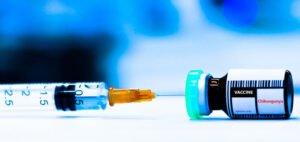In a recently conducted mid-stage trial, the experimental cholesterol pill by Eli Lilly, muvalaplin, presented promising results, positioning the pharmaceutical company to potentially revolutionize treatment for inherited high cholesterol. The data was presented at the American Heart Association Scientific Sessions held in Chicago. Lilly’s drug pipeline extends beyond its flagship diabetes and weight-loss treatments.
Muvalaplin targets high levels of lipoprotein(a) [Lp(a)], a genetically determined risk factor for heart disease, and is the first and only oral therapy in this late development pipeline of various injectable treatments for the condition. Elevated levels of Lp(a) impact around 63 million Americans, and to date, there is no therapy approved for lowering such levels. Unlike LDL, lifestyle modification alone does not help reduce the levels of Lp(a); therefore, medical management is necessary.
The phase two trial of patients at high cardiovascular risk through elevated Lp(a) groups was tested against three daily dosages of muvalaplin, 10, 60, and 240 milligrams, for 12 weeks.
. The results were striking: the highest dose reduced Lp(a) levels by 70% relative to the placebo using a traditional blood test and by almost 86% with a more specific test developed by Lilly. The 60mg amount resulted in a 81.7% reduction, but the smaller 10mg amount lowered the levels by only 47.6%.
In terms of safety, muvalaplin showed a favorable profile, with side effects comparable to those of the placebo group. Lilly’s group vice president for diabetes and metabolic research, Ruth Gimeno, expressed confidence in the drug’s safety, noting that there were “no red flags.”
Lilly is now in discussions with the FDA regarding the next steps for muvalaplin, including the design of a phase three trial. However, Gimeno indicated that final results from late-stage trials could take up to five years to materialize, with subsequent studies likely to focus on whether the pill can help prevent cardiovascular events such as heart attacks and strokes.
Industry analysts are optimistic about the drug’s potential. David Risinger from Leerink Partners suggested that muvalaplin could compete effectively with injectable treatments in development and described it as having “mega blockbuster potential.” However, he noted that Novartis’ injectable treatment, pelacarsen, is expected to release late-stage trial results in mid-2025, which may further define the landscape of Lp(a) therapies.




